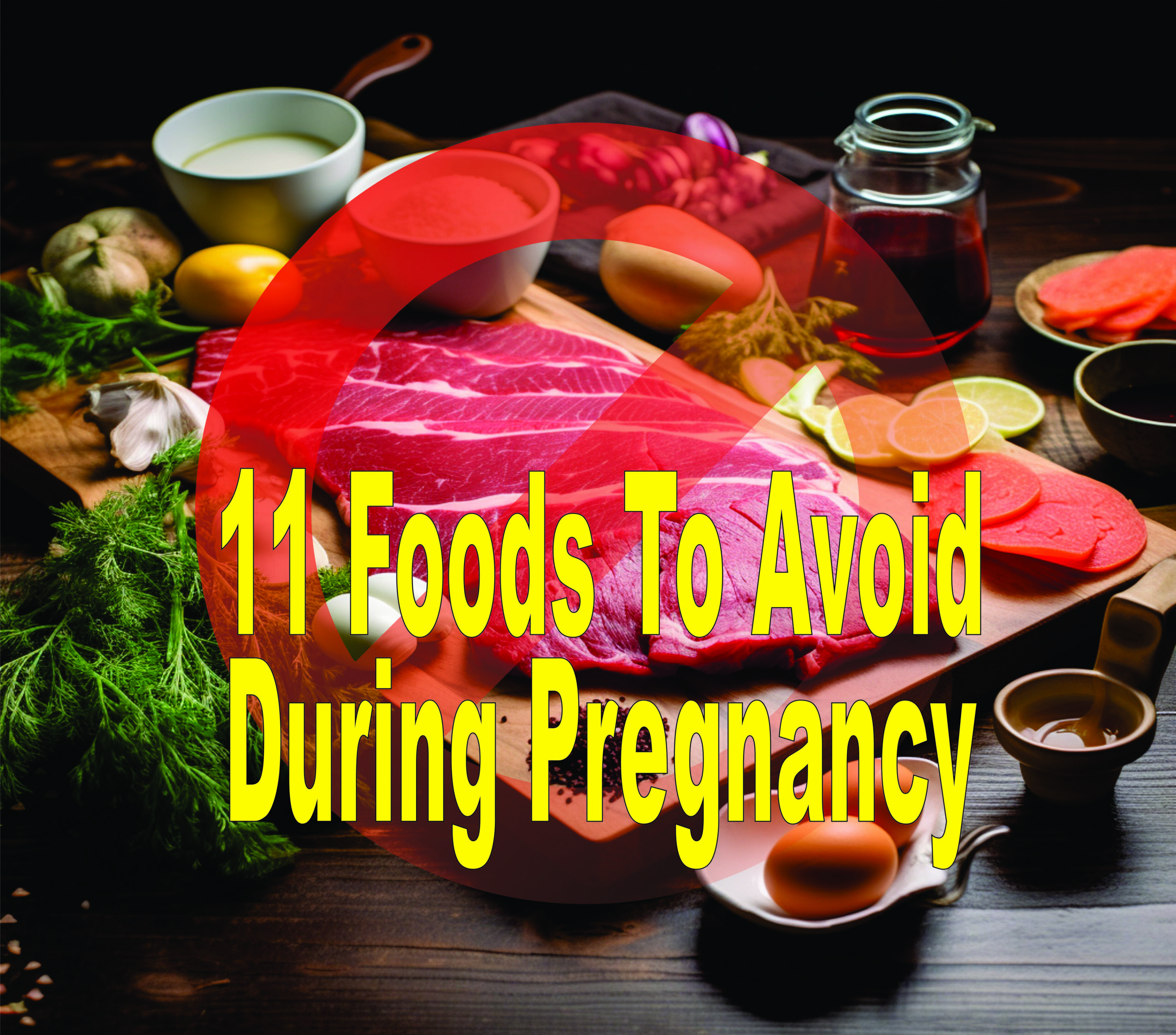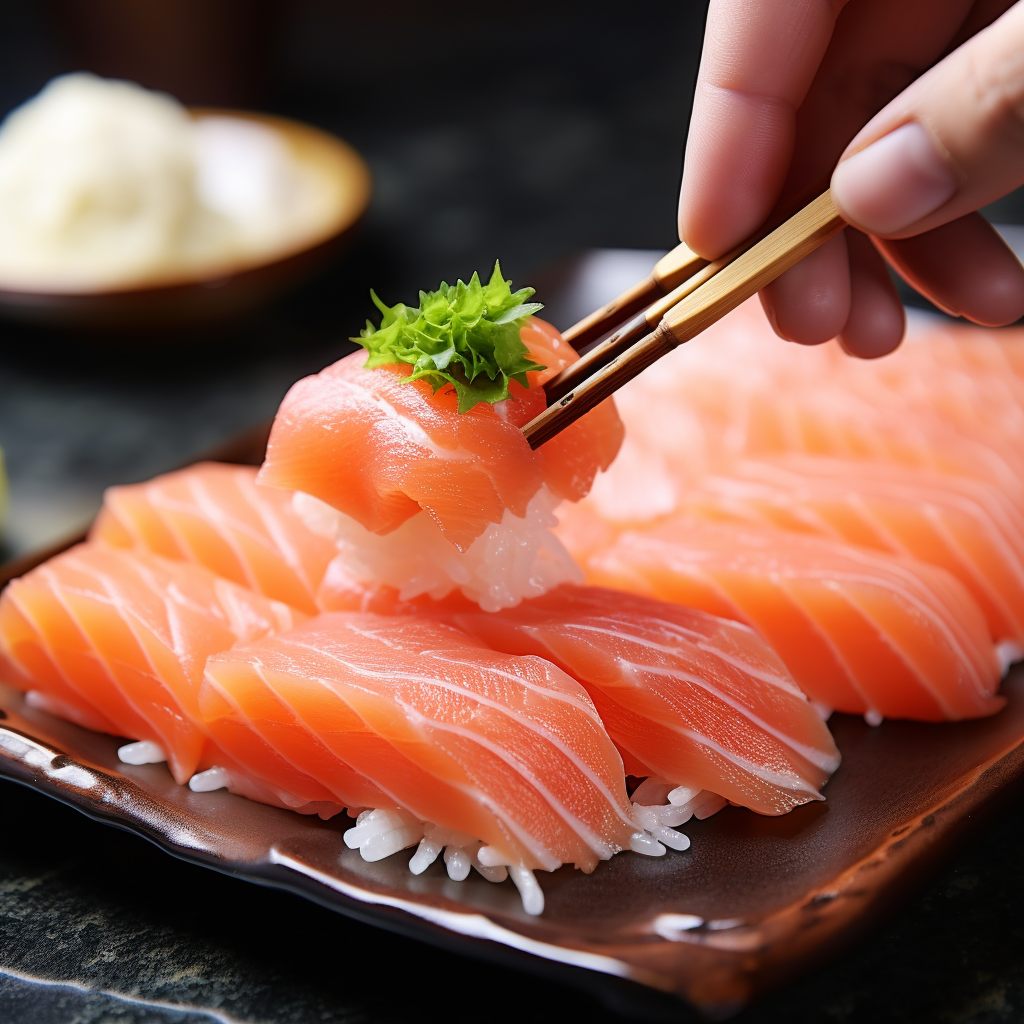Last Updated on November 10, 2023 by Lori Pace
During Pregnancy, one of the essential things mommy should know is what Foods To Avoid. If you are a huge fan of rare steaks, sushi, coffee, or coffee, this can be very frustrating. There’s more to eat than you might think. It’s up to you to navigate these waters (low mercury waters). To stay healthy, and stay “sexy”, you’ll need to be careful about what you eat. Some foods should be avoided entirely, while others should not be eaten.
These are 11 foods and drinks you should avoid while pregnant.
High Mercury Fish
Mercury is highly toxic. Mercury is highly toxic and has not been proven safe to be exposed to. So, this is the very first dish in our list of “Foods To Avoid During Pregnancy”. It is most often found in polluted waters. It can cause damage to your nervous system and immune system.
Even in low amounts, it can cause severe developmental problems in children. Large marine fish can accumulate large amounts of mercury because it is found in polluted waters. It is best to avoid mercury-rich fish during pregnancy and breastfeeding.
High-mercury fish you want to avoid include:
- Shark (welp, worth mentioning!)
- Swordfish
- King Mackerel
- Tuna (especially bigeye tuna)
- Marlin
- Tilefish from the Gulf of Mexico
- Orange roughy
It is important to remember that not all fish have high mercury levels. However, Low-mercury fish are extremely healthy during pregnancy. These fish can be consumed up to three times per semaine, according to the Food and Drug Administration (FDA).
Low mercury fish are plentiful and include:
- Anchovies
- Cod
- Flounder
- Haddock
- Salmon
- Tilapia
- Trout (freshwater)
Anchovies and salmon are good choices because they contain high levels of omega-3 fatty acid, which is important for your baby.
Undercooked or Raw Fish
This one is not easy for sushi lovers, but it is essential. Raw fish, particularly shellfish, can cause many infections. These infections can be viral, bacterial, or parasitic. These infections can only affect you and cause weakness and dehydration. You may pass on other conditions to your baby, which can have severe or fatal consequences.
Listeria infections are more common in pregnant women. According to the Centers for Disease Control and Prevention, pregnant women are ten times more likely than the general population to contract Listeria. Hispanic pregnant women are 24 times more likely to be infected. This bacteria can also be found in soil, contaminated water, and plants. Bacteria can infect raw fish from processing such as smoking and drying.
Even if you don’t have any symptoms, Listeria bacteria can pass to your baby via the placenta. This can cause premature birth, miscarriage or stillbirth and other serious health issues. Avoid raw fish, shellfish, and many other sushi-style dishes. It’s safe to eat again and you will enjoy it more once the baby is born.
Undercooked, Raw, and Processed Meat
Raw fish can also be affected by undercooked meat. Consuming raw or undercooked meat can increase your risk of contracting several parasites or bacteria, such as Listeria, Toxoplasma, and Salmonella.
Bacteria can pose a threat to the health of your baby, leading to stillbirth, severe neurological diseases, such as blindness or intellectual disability, as well as epilepsy. Most bacteria is found on the surface and in whole meats, but other bacteria can be found within muscle fibers.
Whole cuts of meat, such as sirloins, tenderloins or ribeye, may be safe to eat if they are not fully cooked. This applies only if the meat piece is uncut and fully cooked outside. You should never eat raw or undercooked cut meats such as burgers, meat patties and minced meat, poultry, pork, and other cuts of meat. Keep those burgers hot on the grill for now.
Hot dogs, lunch meats, and deli meats are all of concern. This is often surprising for pregnant women. These meats could be infected by bacteria after processing or storage. Women who are pregnant should avoid processed meat products that have not been heated to steaming hot.
Raw Eggs | Foods To Avoid During Pregnancy
Salmonella bacteria can be found in raw eggs. Salmonella infections can cause fever, nausea, vomiting and stomach cramps. In rare cases, however, cramps may occur in the uterus and cause premature birth or stillbirth. These foods often contain raw eggs:
- Lightly scrambled eggs
- Poached eggs
- Hollandaise sauce
- Homemade mayonnaise
- Some homemade salad dressings
- Homemade ice cream
- Homemade cake icings
Most products that include raw eggs in commercial products are made from pasteurized eggs. They are safe to eat. To be sure, always check the label. For your safety, always cook eggs well or use pasteurized eggs. Keep those egg yolks that are too runny and homemade mayonnaise for when the baby is born.
Organ Meat | Foods To Avoid During Pregnancy
Organ meat is an excellent source of many nutrients. Vitamin A, zinc and selenium are all good for your baby. However, pregnancy is not a good time to eat too much animal-based vitamin B12 (preformed vitaminA).
Preformed vitamin A can cause congenital malformations or miscarriage if consumed in excess, particularly during the first trimester. This is most commonly associated with vitamin A supplements. However, it’s best not to consume organ meats such as liver more than a few ounces per week.
Caffeine | Drinks To Avoid During Pregnancy
Perhaps you are one of the millions who enjoy their morning coffee, tea, or cocoa. According to the American College of Obstetricians and Gynecologists (ACOG), pregnant women should limit their caffeine intake to 200 mg per day. The body absorbs caffeine quickly, and it passes easily into the placenta. High levels of caffeine can also happen if the babies and their placentas lack the primary enzyme required to metabolize it.
Studies have shown that high caffeine intake during pregnancy can reduce fetal growth and increase the likelihood of low birth weight. Low birth weight means less than 5 lbs., 8oz. Low birth weight (or 2.5kg) is associated with increased infant mortality and chronic disease risk. Keep an eye on how much caffeine your baby “consumes” each day.
Raw Sprouts
Rogue ingredients may also be present in healthy salads. Salmonella exists in raw sprouts such as clover, radish, and alfalfa. These bacteria thrive in the humid environment seeds require to sprout. They are almost impossible to clean off. It would help if you avoided sprouts that are still raw. According to the FDA, pregnant women can eat shoots once cooked.
Unwashed Produce
Many bacteria and parasites can be found on the surface of fruits and vegetables that have not been washed or peeled. Toxoplasma and E.coli can all be found in soil. Any time there is a possibility of contamination, it can happen during harvest, processing, storage or transportation. Toxoplasma is a dangerous parasite that can remain on fruits and vegetables.
Toxoplasmosis can be mild or severe. Some people may feel the flu for several months. Most infants infected by the Toxoplasma bacteria infected while still in their womb do not experience symptoms when they are born. However, later symptoms like blindness and intellectual disabilities can develop.
A small number of infected babies also have severe brain or eye damage. It is important to avoid infection while pregnant by washing your hands thoroughly and peeling or cooking vegetables. It’s a good habit to continue this practice after your baby arrives.
Unpasteurized Milk, Cheese, And Fruit Juice | Drinks To Avoid During Pregnancy
So, unpasteurized milk, raw milk, and soft-ripened cheeses may contain harmful bacteria such as Listeria, Salmonella, and E.coli. Besides, unpasteurized juice is also susceptible to bacterial contamination. All of these infections can have serious consequences for a baby’s life.
It can either be naturally occurring, or it can be caused by contamination during storage or collection. Pasteurization is the best way to eliminate harmful bacteria without affecting the nutritional content of the products. Pasteurized milk, cheese, or fruit juice are best to avoid infection.
Alcohol
Avoiding alcohol during pregnancy is a good idea as it can increase the chances of stillbirth and miscarriage. Even a tiny amount of alcohol can hurt your baby’s brain development. Fetal alcohol syndrome can also come from drinking alcohol during pregnancy. This includes facial deformities and intellectual disabilities. It is recommended that pregnant women avoid alcohol consumption because it is not safe.
Processed Junk Foods
You and your baby are at the best time to eat nutrient-dense foods. Increased intakes of essential nutrients such as iron, folate, choline and protein will be necessary. It is also a myth that eating for two is possible. You can eat the same as usual during the first semester and then increase your calories by 350 calories per day in your second trimester. And about 450 calories per day in your third trimester.
A healthy pregnancy diet should include whole foods with lots of nutrients. Junk food, which is often processed, lacks nutrients and is high in calories, sugar and other added fats. Although some weight gain during pregnancy is normal, excessive weight gain can with many complications and diseases. These include an increased chance of gestational diabetes and pregnancy complications.
Make sure you eat meals and snacks that are high in protein, vegetables, fruits, healthy fats, fiber-rich carbs like beans, whole grains, and starchy veggies. There are many ways to sneak vegetables into your meals, without losing taste.
Final Remark
It is important to avoid food and drinks that could put your baby and yourself at risk when you are pregnant. Most foods and beverages can be enjoyed safely, but some should be avoided, such as raw fish, unpasteurized milk, alcohol and high-mercury fish.
To promote a healthy pregnancy, you should limit certain foods and drinks, such as coffee and added sugar. These choices can also help you manage your stress during pregnancy. So, this article will help you learn more about healthy eating during pregnancy.



